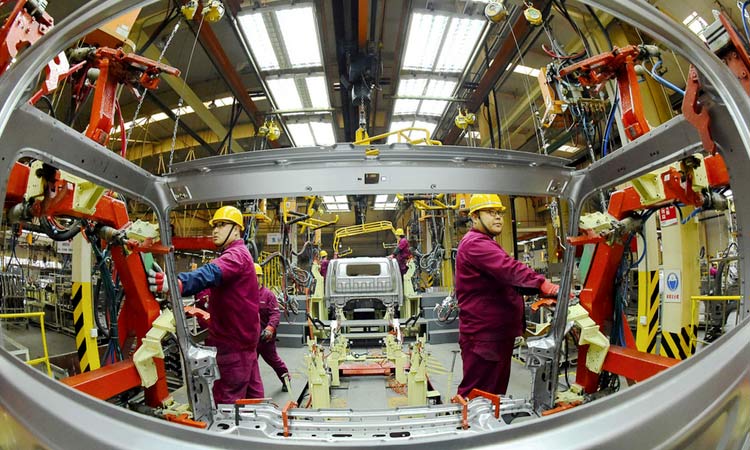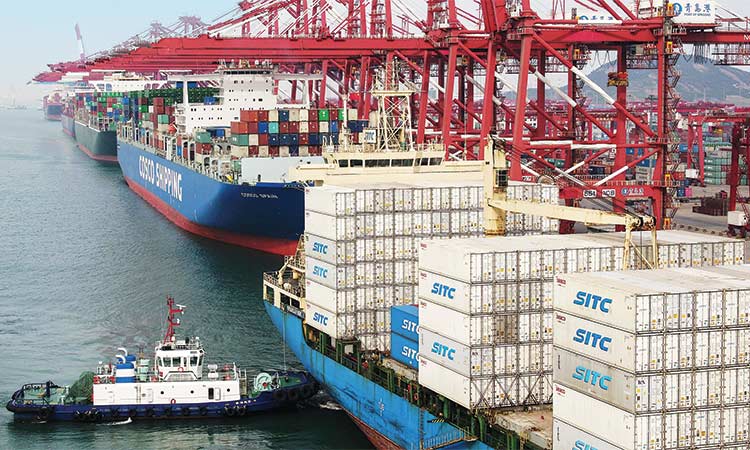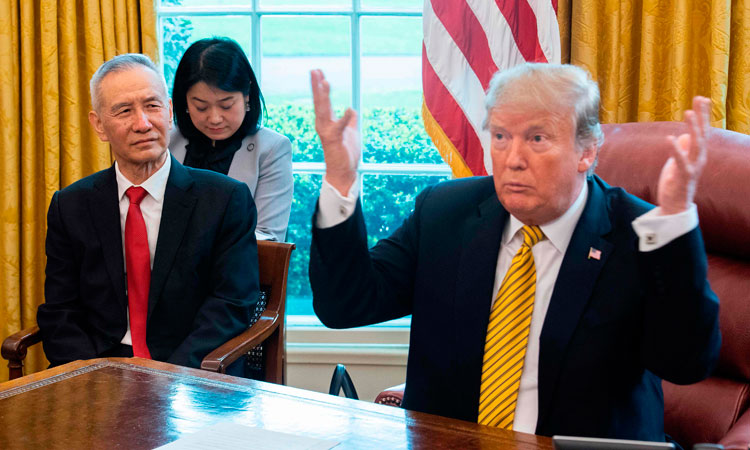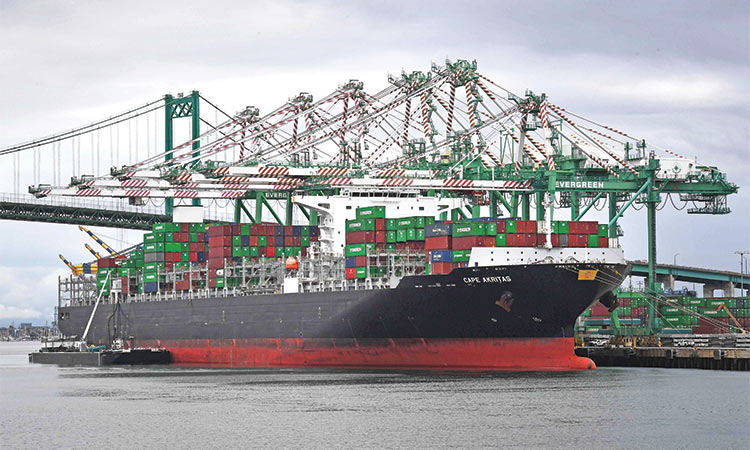China’s factory activity shrinks as US tariffs, slowdown hit orders

Employees work on a production line manufacturing light trucks at a JAC Motors plant in Weifang, Shandong province. Reuters
The Purchasing Managers’ Index (PMI) stood at 49.4 in June, China’s National Bureau of Statistics said on Sunday, unchanged from the previous month and below the 50-point mark that separates growth from contraction on a monthly basis. Analysts polled by Reuters predicted a reading of 49.5.
The weak manufacturing readings are likely to cast a shadow over the apparent progress US and Chinese leaders made at the G20 summit in Japan over the weekend in restarting their troubled talks over tariffs amid a costly trade war.
They will also spark concerns about stalling growth in China and the risk of a global recession, despite slightly better-than-expected export and industrial profits data in May.
Many economists still expect the economy to face strong headwinds in coming months as domestic demand falters and external risks rise.
“Although the outcome of the G20 summit (in Osaka) might boost confidence for some entities, organic growth in the economy is still insufficient, and counter-cyclical stimulus policies need to be maintained,” researchers at Huatai Securities wrote in a research note on Sunday.
“The PMI index continued to fall across the board this month, and only the raw material inventory sub-index was up due to weak demand,” the research note read.
In June, China’s factory output growth slowed, with the subindex falling to 51.3 from 51.7 in May while the contraction in total new orders accelerated to 49.6 from 49.8.
Export orders extended their decline with the sub-index falling to 46.3 from May’s 46.5, suggesting a further weakening in global demand.
Import orders also worsened, reflecting softening demand at home despite a flurry of growth-supporting measures rolled out earlier this year.
Southwest Securities said weak new export orders reflected a fading of the front-loading effect, which had temporarily boosted exports as Chinese companies rushed to place orders before more tariffs took effect.
Presidents Donald Trump and Xi Jinping held ice-breaking talks at the G20 summit on Saturday. However, Chinese state media warned on Sunday Beijing and Washington will likely face a long road before the two countries could reach a deal.
Trump has already imposed tariffs on $250 billion of Chinese goods and is threatening to extend those to another $300 billion, which would effectively cover all of China’s exports to the United States. China has retaliated with tariffs on US imports.
To deal with the economic challenges, policymakers have released a range of measures and are expected to launch more. Premier Li Keqiang last week pledged to cut real interest rates on financing for small and micro firms.
Manufacturers continued to cut jobs in June, with the employment sub-index falling to 46.9, compared with 47.0 in May, when it hit the lowest level seen since March 2009.
An official business survey showed activity in China’s services sector held firm in June despite growing pressure on the broader economy from US trade measures, with the official reading at 54.2 in June from 54.3 in May.
Meanwhile, China will soften or lift restrictions on foreign investment in new sectors from July 30, authorities announced on Sunday, after Beijing and Washington decided to restart negotiations in their trade war.
Foreign investors in China have long complained of unfair treatment, with restrictions covering sectors including maritime transport, gas pipelines, cinema, entertainment and telecommunication services, according to the Ministry of Commerce and the NDRC, the powerful economic planning committee. China has a “negative list” that states which industries are closed to, or regulated for, foreign investment.
On July 30 that list will be reduced from the 48 sectors currently included down to 40 according to the Ministry of Commerce and the NDRC.
The announcement comes a day after China’s President Xi Jinping and his US counterpart Donald Trump met on the sidelines of the G20 summit on Saturday, agreeing to restart trade talks that were abruptly halted in May.
China and the US have been embroiled in a trade war since last year, slapping tariffs on goods worth $360 billion in two-way trade.
Trump has demanded Beijing implement structural reforms that guarantee an even playing field for foreign companies.
Earlier this month, Chinese premier Li Keqiang promised his country’s market would be opened further to non-Chinese businesses.
“We will soften entry to more sectors to create an international business environment, founded on the market and law,” Li told representatives of multinational companies at Beijing’s opulent Great Hall of the People.
China adopted a law in March that aimed to give foreign investors the same privileges as Chinese companies in most sectors, except those placed on the “negative list”.
Agencies







